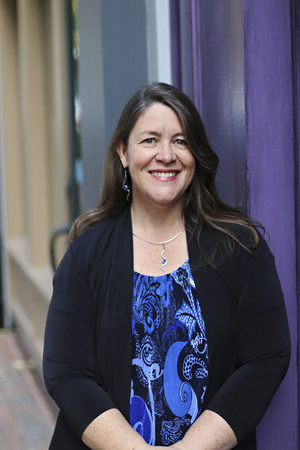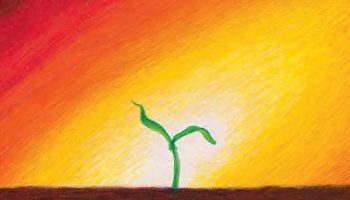The pages of many U.S. history textbooks start with Christopher Columbus. But, Cherokee author and activist Traci Sorell is working to ensure that history is taught accurately and that no pages are left out.
“When we teach history, we jump right to Christoper Columbus, and Native Americans disappear by the 1900s,” Sorell said. “And there is history after that point. And people need to be aware of it if they are going to be living in this country — everyone needs to be an informed citizen.”

Sorell writes fiction and nonfiction books, as well as children’s poems. Many of her books focus on Native American themes, topics and issues. In her nonfiction children’s book, We Are Still Here!: Native American Truths Everyone Should Know, Sorell conveys how Native American communities are fighting for contemporary visibility and representation in a society that has forgotten about their existence.
Despite the obstacles that Native American communities have faced throughout history, including forced migration and assimilation, as well as genocide, Sorell shows how Native American communities are still here and not of the past. She highlights the resilience and perseverance of Native Americans.
We Are Still Here! is the Week One pick for CLSC Young Readers, and Sorrell will discuss it at 4:30 p.m. Friday, July 1, in the Hall of Philosophy, the first-ever in-person CLSC Young Reader’s presentation. Sorell, who gave a virtual talk on CHQ Assembly in 2021 for CLSC Young Readers, said her book offers readers information on “everything that they never learned in school about Native Americans past, present and future.”
“I didn’t really learn about things that happened to other Native nations outside of my own until I went to college,” Sorell said. “In college I was like, ‘What is going on? Why didn’t I learn this in elementary school?’ ”
She said this was her motivation for writing We Are Still Here!; she wanted to create a book that “gave everyone an accessible entry point to start learning.”
Although Sorell’s book is intended for children, people of all ages can learn about Indigenous history and topics.
“As much as the book is for children,” Sorell said, “it is also accessible to those who never had any educational resources about Native Americans in high school, and may or may not have gone to college. Even if they had gone to college, they probably never learned anything. We just have a huge amount of ignorance.”
In the book, Sorell introduces the reader to Native American history while discussing contemporary Native American topics, such as tribal sovereignty. Many individuals are not even aware of the existence of contemporary Native Americans — that tribal nations and governments still exist in the United States today.
“Many of the topics discussed in the book are still not a part of the school curriculum. And they should be,” Sorell said. “You should not be completing K-12 education in this country and not know about Native nations”
Through her work as an author, an activist and a federal Indigenous law attorney, Sorell is working to amplify Native American voices and stories.
“I am in a position where I don’t always create the books myself,” Sorell said. “I also mentor and help other people from Native nations write stories and bring their art to the world, … I want to do that as much as I can, as well. For so long, we, as Native people, have not had that representation, and literature has suffered tremendously for it.”
As a member of the Cherokee Nation of Oklahoma, Sorell believes that it is highly important for Native American communities and minorities to start telling their own stories and narratives.
“On my part, I want to be engaging, but I also want to be accurate,” Sorell said. “There have been plenty of times where non-Native people are telling the stories of Native nations and frankly, they have gotten it totally wrong.”
In Sorell’s book, the children are the ones who are controlling the narrative.
“And ironically, isn’t that what always happens these days?” Sorell said. “It’s the younger kids who are the ones that are actually teaching the adults.”
Growing up, Sorell said that she did not have access to as much diverse literature as young do in 2022. She works to provide young people with access to the resources and representation she never had.
“Part of why I write, fiction and nonfiction, is because I want better for young people. They deserve better,” Sorell said. “Young people today know their intersections and identities, and they want to see that reflected in literature. Adults writing for children have to be smart enough to reflect that.”




